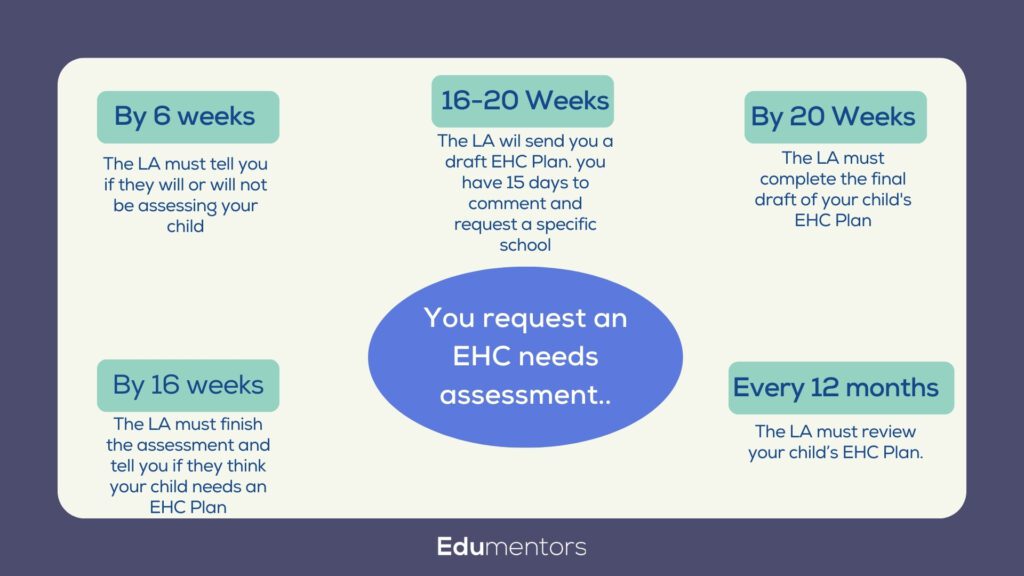What is a Child in Need?
Definition of a Child in Need under Section 17 of the Children Act 1989
Under Section 17 of the Children Act 1989, a child is defined as being ‘in need’ if they require additional services to achieve or maintain a reasonable standard of health or development, or to prevent their health or development from deteriorating. This section of the Act aims to ensure that necessary services are provided to these children by the Local Authority, covering everything from education to healthcare and social services.
Criteria for determining if a child is in need
A child might be considered ‘in need’ if without the intervention of local authority services, they are unlikely to achieve or maintain a reasonable standard of health or development, or their health and development will significantly deteriorate. Parents should be aware of the signs that their child needs help with school which may indicate a need for additional support. Furthermore, any child who is disabled, whether physically, mentally, or emotionally, also falls under this category.
Types of situations and conditions typically considered under this classification
The spectrum of situations where a child may be considered ‘in need’ is broad. These can include, but are not limited to:
- Children with disabilities or special educational needs (SEND) who require tailored educational or healthcare interventions.
- Young carers who may need support balancing their educational and caregiving responsibilities.
- Children who are affected by or are at risk of abuse or neglect, which may impair their health and development.
- Children whose parents or guardians have disabilities or health issues that might affect their ability to provide adequate care.
- Asylum-seeking children who might require specific social and educational support to adapt and integrate into new communities.
Each of these situations requires a nuanced approach to ensure that the interventions provided are both appropriate and effective, tailored to the unique needs of each child. The goal of Section 17 services is not just to support but also to enhance the lives of these children, ensuring they have a solid foundation for a successful future.
Understanding the Child in Need Assessment Process
Navigating the Child in Need assessment process can be daunting for parents and guardians. Understanding each step, the professionals involved, and what to expect can make the process more manageable and less stressful. This section explains how the assessment process works under Section 17 of the Children Act 1989, detailing the roles of the involved professionals and what families can anticipate throughout the procedure.

Explanation of the assessment process under Section 17
The assessment process under Section 17 is initiated when there is a concern that a child may be ‘in need’. This could be due to disability, developmental delays, or because their living conditions do not adequately support their health and development. The process begins with a referral, which can be made by parents, teachers, health professionals, or social workers. Once a referral is received, the local authority has a duty to assess the child’s needs to determine the type and level of support required.
The assessment is holistic and considers the child’s health, education, and social welfare. It aims to identify not only the immediate needs but also any longer-term support the child and family might require. The local authority must complete this assessment within 45 working days from the day the referral was received.
Key professionals involved and their roles
Several key professionals may be involved in the Child in Need assessment process, depending on the child’s specific needs:
- Social Workers – Lead the assessment process, coordinate with other services, and are the main point of contact for the family.
- Health Professionals (such as paediatricians or mental health specialists) – Assess the child’s health needs and provide medical input as part of the assessment.
- Educational Psychologists – Evaluate educational needs and how the child’s condition affects their learning.
- Teachers and SENCOs (Special Educational Needs Coordinators) – Provide insights into the child’s educational progress and how their needs are being met at school.
- Family Support Services – Offer guidance and support to the family during the assessment process and beyond.
Each professional contributes their expertise to form a comprehensive view of what the child and their family need to thrive.
What parents and guardians can expect during the assessment
Parents and guardians play a crucial role in the Child in Need assessment process. Here’s what they can typically expect:
1. Initial Meeting: After the referral, the social worker will arrange an initial meeting to discuss the reasons for the assessment and what it will involve.
2. Information Gathering: Professionals will gather information from various sources, including schools, doctors, and other relevant agencies. Parents may need to provide access to records and details about their child’s development and health.
3. Assessments by Professionals: Depending on the child’s needs, assessments by health professionals, educational psychologists, or therapists may be necessary to identify specific requirements.
4. Family Interviews: These discussions help social workers understand the family dynamics and the support network available to the child.
5. Feedback and Discussion: After the assessments, the social worker will discuss the findings with the parents and explain the recommended support plan.
6. Development of a Child in Need Plan: If the assessment concludes that the child is in need, a plan will be developed to outline the services and support that will be provided.
- Throughout the process, parents and guardians should expect to be fully involved and kept informed. Their input is invaluable in creating an effective plan that truly meets their child’s needs. It’s also important for parents to know that they have the right to express their views and preferences throughout the assessment.
Introduction to Education, Health and Care Plans (EHCP)
An Education, Health and Care Plan (EHCP) is a legal document in the UK that outlines the education, health, and social care support that is necessary for a child or young person with special educational needs and disabilities (SEND) to thrive in school and life. The EHCP is designed to ensure that children and young people receive tailored support that meets their unique needs, facilitating more effective learning and development. Many neurodiverse students with EHCPs also benefit from specialised tutoring approaches – learn more in our guide on how to tutor neurodiverse students.
Differences between EHCP and previous statements of special educational needs
EHCPs replace the earlier system of Statements of Special Educational Needs and Learning Difficulty Assessments. Unlike these previous documents, EHCPs cover a broader age range, from birth up to 25 years if the young person remains in education. They also provide a more holistic approach by including not just educational but also health and social care needs, ensuring a more integrated support system that addresses all aspects of a child’s development.
Eligibility and Application Process for an EHCP
Who is eligible for an EHCP?
Children and young people aged between 0 and 25 who have significant educational, health, and social care needs that cannot be met through the regular support typically available in schools or colleges are eligible for an EHCP. This includes children with both physical and mental disabilities who require substantial extra help to access education.
Step-by-step guide on how to apply for an EHCP
- Check Eligibility: Confirm that the child’s needs might qualify for an EHCP.
- Request an Assessment: A request for an EHCP assessment can be made by parents, guardians, or young people themselves if over the age of 16. Schools and other professionals can also make a referral.
- Assessment Process: The local authority reviews the application to decide whether to conduct an assessment. This involves gathering evidence from various sources including the child’s school, doctors, and other relevant professionals.
- Drafting the Plan: If the assessment concludes that an EHCP is necessary, a draft plan is created.
- Review and Finalisation: Families have the opportunity to review the draft and provide input before the final plan is issued.
Key documents and evidence required for application
- Educational reports and records.
- Medical assessments and diagnoses.
- Reports from social services (if applicable).
- Personal statements detailing the child’s needs and how they affect their education and daily life.
Benefits for Child with EHCP in the UK
An EHCP can transform a child’s educational experience and overall development. It ensures that specific learning strategies are tailored to the child’s abilities and challenges, potentially including therapies, assistive technologies, and customised learning aids. The plan also facilitates access to specialist schools or classes equipped to provide appropriate education and care, and in some cases, may support exam access arrangements such as extra time in exams, depending on the student’s assessed needs.
How EHCPs support educational, health, and social needs
- Educational Support: EHCPs specify the educational setting that is most suitable for the child, along with the type and frequency of support required. This might include specialist teaching or in-class support.
- Health Care: Where applicable, EHCPs outline any therapeutic services needed, such as speech and language therapy, physiotherapy, or occupational therapy, ensuring these are integrated into the child’s education.
- Social Care: If needed, the EHCP includes provisions for social care, such as respite care or mobility assistance, supporting the child’s well-being beyond the educational environment.
Overall, EHCPs provide a comprehensive framework for supporting children with significant needs, ensuring they receive consistent and coordinated support across their education, health, and social environments.
Check our blog about: How to Tutor Neurodiverse Students
How to Appeal EHCP Decisions
why are EHCP Applications Rejected?
EHCP applications can be denied for a variety of reasons including:
- Insufficient evidence that the child’s needs cannot be met through existing resources available at the school.
- The local authority may not be convinced that the child’s educational, health, or social needs are severe enough to require an EHCP.
- Lack of detailed documentation or specific medical, educational, or care assessments.
Steps on how to appeal an EHCP decision
- Mediation: Before formally appealing, families are usually required to consider mediation. This involves a neutral third party helping to resolve the dispute between the family and the local authority.
- Tribunal Appeal: If mediation does not resolve the issue, families can file an appeal with the Special Educational Needs and Disability Tribunal. The appeal must be made within two months from the date of the decision letter or one month following the mediation certificate, whichever is later.
- Prepare for the Hearing: Gather all relevant documents, evidence, and expert reports that support the need for an EHCP. It’s also advisable to seek legal advice or representation.
- Tribunal Hearing: At the hearing, both sides will present their case, after which the tribunal will make a decision.
Resources and support available for families during the appeal process
- SENDIASS (Special Educational Needs and Disability Information Advice and Support Service): Offers free, confidential, and impartial information, advice, and support to families on EHCP and appeals.
- IPSEA (Independent Provider of Special Education Advice): Provides free and independent legally based advice to families on educational rights and entitlements.
- Local support groups and charities: Many local and national groups offer assistance, advice, and sometimes legal help.
Conclusion
Understanding and accessing “Child in Need” and “Education, Health and Care Plan” services are crucial for the support and development of children with special needs and disabilities. These frameworks are designed to ensure that all children receive the opportunities to succeed and thrive regardless of their circumstances or challenges. Parents and guardians play a vital role in initiating and advocating for these processes. It is important that they pursue these assessments and plans vigorously and seek the necessary guidance and support throughout the process.









